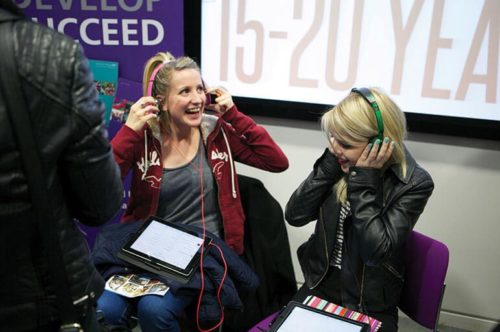Opis tego kierunku w języku polskim znajdziesz tutaj:
https://studiawanglii.pl/courses/wymiar-sprawiedliwosci-dla-mlodziezy/
You’ll be joining a course with great employability! 100% of our BA (Hons) Youth Justice and BA (Hons) Youth Studies graduates are in employment or further study within six months of finishing their degree (DLHE 2016/17)
Youth Justice is all about working with young people who offend or are at risk of offending. This course links academic theory to contemporary practice through placements, visits and guest speakers.
Our Youth Justice degree is multidisciplinary, involving the study of social policy, sociological, psychological and criminological perspectives. You’ll explore why young people offend, and the impact their families and communities have upon their personal development and criminal behaviour. Throughout the course you’ll consider comparative international practices of managing offending behaviours, and initiatives for reducing offending.
Why choose this course?
- While this course does explore a number of criminological perspectives, it is mapped against the Skills for Justice National Occupational Standards for Youth Justice. This makes the course ideal for those interested in the study of Criminology but who are keen to work within the Youth Justice sector.
- You’ll be taught by a teaching team who are highly accomplished and experienced in the Youth Justice sector. Their expertise in the subject informs the course and ensures you have an up-to-date and relevant learning experience.
- Experienced Youth Justice Practitioners are involved in various teaching sessions to share their specialist knowledge and experiences of working with young people.
- This course could open up a range of rewarding careers in secure estates, prisons, youth offending teams and the probation service.
Careers and employability
Our Youth Justice graduates gets jobs — 100% of our BA (Hons) Youth Justice students are in employment or further study within six months of finishing their degree (DLHE 2016/17)
The job titles below give an indication of the careers our recent Youth Justice graduates are following:*
- Youth Justice Service Officer
- Residential Social Worker in a Children’s Home
- Child Sexual Exploitation Support Worker
- Custody Officer
- Youth Worker
- Fraud Investigation and Prevention Officer
- Mental Health Worker
- Youth Support Worker
- Residential Support Worker
- Behavioural Mentor
- Case Worker
- Support Living Coordinator
- Children and Young Persons Designated Key Worker
- Housing and Welfare Officer
- Housing Support Coordinator
*Latest DLHE survey undergraduate results, 2015-16 and 2016-17.
You may also consider studying a postgraduate course in areas such as social work or criminological justice.
Excellent work experience opportunities
Work-based learning is a valued feature of this degree and there are four unique components.
- You may have the opportunity to do an observational experience with a youth justice agency in Year Two. This is part of the Effective Practice in Youth Justice module, which is focused on the skills required to develop effective relationships with young people. The Effective Practice in Youth Justice module is closely aligned to the Youth Justice Effective Practice Certificate (formerly Professional Certificate in Effective Practice), the Youth Justice Board’s entry-level qualification for working in the youth justice sector.
- Teaching sessions delivered by youth offending team practitioners and other youth justice personnel on their specific roles and agencies.
- Course visits to various institutions within the justice system, following an arrest-to-sentence process (incorporating police, courts and young offenders’ institutes).
- Mock cases and simulated case files will be used to give you valuable experience in a safe environment.
You’ll benefit from the well-established relationships the course team have developed with youth justice agencies in our region, and other bodies such as:
- the secure estate
- Skills for Justice
- Nottingham Council for Voluntary Service
- the YMCA.
The course team work closely with the NTU Volunteers Service and Employability team to make you aware of the significant number of voluntary and sessional paid opportunities that are available.
Throughout the course there will be opportunities for you to understand the work of practitioners in a number of different specialist areas, such as Youth Offending Team Case Managers and secure children’s homes.
Your career development
Local youth offending team employers have been involved with the design of the course and will be regularly consulted throughout. This will clearly enhance your employability within the youth justice sector, which includes youth offending teams, children’s services, and the secure estate.
Upon completion, you’ll have gained the confidence, experience and specialised knowledge and skills to embark on a career in the growing youth justice sector and its associated support services. These areas are always developing innovative ways to engage young people and prevent criminal behaviour and re-offending.
Your ability to carry out independent research, evaluate interventions, reflect on practice and work in multi-agency settings will also be greatly valued by future employers.
Career opportunities that interest you may include:
- youth offending teams
- preventions projects
- mentoring services for young people
- restorative justice services
- the secure estate
- prisons and the probation service.




















